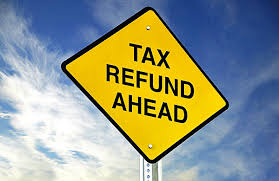 Tax refunds are great, aren’t they? They feel like free money, and most of us are all too willing to treat them as such, splurging them on things we want but wouldn’t normally buy.
Tax refunds are great, aren’t they? They feel like free money, and most of us are all too willing to treat them as such, splurging them on things we want but wouldn’t normally buy.
However, tax refunds are not actually free. They’re a repayment of extra tax you’ve paid, without earning interest on it. In 2015, the average tax refund was a little over $3,000, so make up for lost time by investing your refund in something that gives you long-term benefits.
Here are three major areas to consider:
- Insurance protection
- Emergency savings
- Extra funds for fun activities or your own interests
We’ll look at these in more detail below.
How to Use Your Tax Refund for Long-Term Gains
Here are 5 smart moves that you can make with your tax refund today:
- Invest in Life Insurance – The most common misconception about life insurance is that it’s expensive, and you can’t afford it. The reality? Most of us can’t afford to die, since our loved ones depend on us!
Breadwinners need insurance so their families are protected against financial loss in case of their untimely demise, but stay-at-home parents need insurance too. In case of their death, the policy will help pay for child care and other essential services.
Term life insurance is very affordable, but look into funding a whole life plan with your tax refund, for the cash value it builds over time.
- Buy LTC or Disability Insurance – If you’re injured or sick and cannot work for a long period, your finances suffer. The risk of disability is higher than you’d think, affecting over 25% of the population before retirement!
Disability insurance replaces a portion of your earnings if you’re unable to work, while long term care insurance helps offset the cost of medical treatment and related expenses of a long-term injury or illness. Even if your employer provides coverage, look into additional insurance you can buy with your tax refund.
- Fund Your Retirement – Well, a single tax refund won’t take care of your golden years, but it’s a start. Put the extra funds into your IRA, where they can keep growing tax-free. Your future self will thank you for holding off on an impulsive purchase today!
You should also have an emergency fund for unexpected expenses, with enough funds to take care of expenses for 3-6 months. If that’s a stretch for you right now, your tax dollars are a good place to begin, so you aren’t knocked off your feet if something goes wrong.
- Save for Medical/Healthcare Emergencies – Even with health insurance coverage, you may still have heavy out-of-pocket expenses if you or someone in your family faces a medical emergency.
Check out your health insurance deductible to understand how much you need to contribute in a flexible spending account or health savings account. Starting with your tax refund, create a separate emergency fund solely for unexpected medical or healthcare bills.
- Pay for Home Improvement – If you’ve been planning to renovate, redecorate or carry out repairs in your home, use your tax refund (this also applies to car insurance).
Pay for smaller repairs and improvements on your own, instead of making a claim on your homeowners insurance. This keeps your rates from going up later (even if you switch companies), and you can save the policy’s deductibles for larger expenses or emergencies.
Remember, your tax refund is money that the government has been sitting on, not a gift or bonus that you’re receiving. Change your mindset and think ahead!
About The Author
Joel Ray provides expert guidance on an array of topics, centered on securing a sound financial future for you and your family. Joel shares his passion to help others, in meeting their financial goals, through his informative blogs and whitepapers. Follow Joel @lifecentra or check out his blogs and videos at LifeCentra today!




No Comments